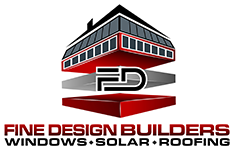Things You Should Know About Solar Power Installation
If you’re planning to install solar panels on your home, there are a few things that you should know before you begin. First, you should determine what type of equipment you will need for your installation. Next, you should know about costs and permits. And finally, you should have a clear understanding of your net metering bill and any other additional fees you’ll be required to pay. Refer to This Site.
Installing solar panels on your home
Whether you are considering solar panels for your home or want to convert your old electricity to solar energy, there are many things to consider before you get started. First, you’ll need to secure the proper permits from your city or county. Once you’ve secured these permits, the solar installer will order the equipment and install it on your roof. After that, your installer will connect the solar panels to your electrical system, which will be the source of power for your home.
Solar power is a great way to reduce your reliance on traditional utilities and can offset all or a portion of your energy bill. Not only will it help you save money in the long run, but it will also help protect our environment by reducing your carbon footprint. And a solar panel system will add value to your home in the long run, making it a worthwhile investment.
Choosing the right equipment for the job
Choosing the right equipment for solar power installation is a major decision that will impact the final cost of your solar installation. This is because equipment makes up a large portion of the total cost. The EnergySage Marketplace can help you choose the right equipment and save thousands of dollars on solar installation. It can also help you find a local installer to complete your installation.
When buying solar equipment, it is important to consider quality and durability. The technical specifications listed on a solar equipment specification sheet will help you understand the product’s quality and durability. However, choosing the right equipment can be challenging because of the wide variety of solar equipment. Thankfully, EnergySage has worked with the National Renewable Energy Laboratory to develop a system to help you choose the best equipment for your needs.
Costs
The costs of solar power installation are dependent on a number of factors. First, consider your geographic location. Some states, like California, have higher amounts of sunlight than others. These areas are more likely to experience the benefits of solar power installation, and they are typically the least expensive to install. State financial incentives also help make the transition to solar more affordable.
Hardware costs for solar panels are the most expensive part of solar installations. These include the solar panels, collectors, inverter, battery, and installation labor. Generally speaking, solar hardware costs around 25 percent of the total cost. Soft costs such as labor, permits, overhead, and sales tax make up the bulk of the remaining cost.
Permits
Before you install solar panels, you will need to get permits from the appropriate authorities. These agencies are typically the local building department. You may also need to get permits from the fire department. While the fire department normally does not enforce construction codes for residential buildings, they may become involved if they have concerns about the unique nature of solar projects. If possible, set up an MOU with the fire department to streamline the process.
Permit requirements vary from state to state and even town to town. Building codes, zoning laws, and other legislation determine the requirements for permits. There may also be local historical commissions or HOAs that require approvals.
Electric service panel size
The size of your electric service panel is an essential consideration when you are planning a solar power installation. A typical panel box has between 100 and 225 amps, but your electrical code may require more or less. It is important to select a panel size that will provide enough power for your solar panel to produce all the energy it needs.
If your main breaker is more than 100 amps, you should consider upgrading it to 200 amps or higher. A 200 amp main breaker is enough for a 5-6 kW solar installation, but anything more will require special wiring. Click the Following Web Page.
